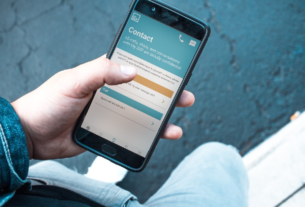COVID-19 has given a particularly hard time to cybersecurity professionals since most of the world has shifted online, offering hackers a vast pool of unprotected devices and unaware users. The first uproar that was seen was when there had been a time that saw a sharp increase in the number of devices that suddenly increased on the internet. And the second is the current one – most offline businesses and educational and medical sectors had to switch to the web to remain functional.
It created new options for hackers to exploit the online vulnerability of new/unaware users. The biggest of that pool are remote workers and the biggest attacks being used to target them are phishing attacks.
The biggest example is the circulation of fake emails under the name of WHO that ended up in a disaster. People across the world were left exposed.
Which is why it’s the duty of everybody on the web, especially, remote workers, to learn, adopt and follow the following cybersecurity practices.
- Practice Better Password Hygiene
Your system was earlier under the eyes of the security team when you were at office, since that’s no longer the case, here’s what you should do.
- Make your system password very very strong – use a combination of letters, numbers, and symbols and make the password at least 12-15 characters long.
- Stop Sharing – Don’t login to your system using public Wi-Fi come what may. Don’t use the work system for personal browsing. Don’t share the password, even with a family member. In other words, lesser people knowing the password means lesser chances of a leak.
- Use MFA – Adding security layers to get system access in addition to the password is a wonderful way.
- Practice Techniques For Protection From Phishing Attacks
The more you know about phishing, the better it is for everybody.
Here’s what phishing is all about.
- A very credible looking email ends up in the inbox.
- The link attached to the email contains malware.
- Clicking on such links gives malware the window to enter the system.
Here’s what you can do to prevent this from happening to you.
- Don’t open emails from sources you’re not related to no matter the accuracy of the information.
- Inform the security team of the company to first confirm the genuinity of the email. Respond only once they confirm the status as safe.
Another thing that does help remote workers is using the VPN. So, as an organization make this a mandatory practice.





